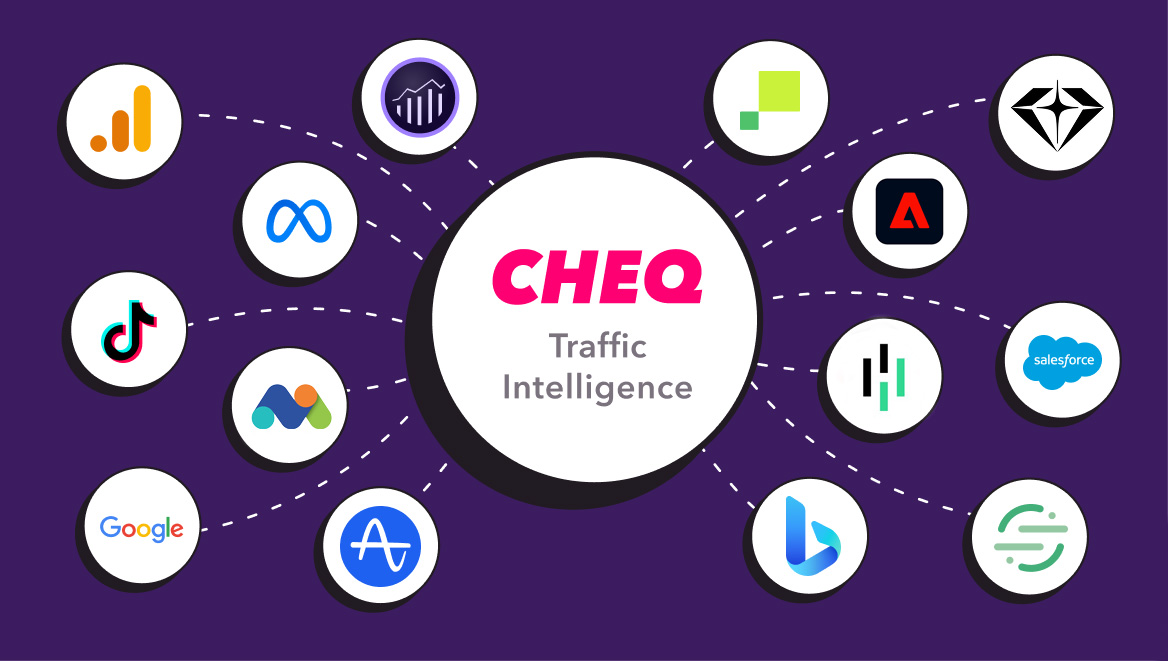Better Targeting with Facebook Conversion API and Server-Side Tagging
Jeffrey Edwards
|Marketing | January 12, 2023

For years, Facebook Custom Audiences has been a critical tool for retargeting Facebook users who interacted with your brand or website. But as the business world–and regulators– shift focus towards data privacy, the landscape for Facebook Custom Audiences has changed dramatically and lost much of its effectiveness. Not least of Facebook Custom Audiences’ troubles are the new privacy features released by Apple this year.
In this blog, we’ll explore how iOS 14 affects Facebook Custom Audiences, and how you can regain lost effectiveness with Facebook Conversion API and server-side tagging (SST). To learn more about integrating Meta’s CAPI with SST, check out our on-demand webinar, The Power of Meta’s Conversions API and Server-Side Tagging, where experts from Meta and CHEQ demonstrate how to improve the targeting, effectiveness, and data security of your Meta campaigns by leveraging the Conversions API (CAPI) and server-side tagging.
How iOS 14 Affects Facebook Custom Audiences
Ad blockers have always been an issue for Facebook Custom Audiences, but usually, this has only affected a small percentage of non-mobile traffic. With the release of Apple iOS 14 in September 2021, the problem skyrocketed. With iOS 14, apple essentially mainstreamed adblockers with its new App Tracking Transparency Framework, which gives all iOS users the ability to highly restrict or opt-out entirely of app tracking on Apple mobile devices.
Over 25% of all internet traffic comes from an iOS device and Apple has announced that over 90% of iOS devices are now on iOS 14, so it’s no shock that Facebook is now getting a lot less information (or even no information) around users you want to retarget, and therefore decreasing your target audiences. Furthermore, Facebook expects all major browsers and operating systems to block or significantly impact third-party cookies (and therefore Facebook Custom Audiences) by 2022. Even Google has announced plans to phase out third-party cookies by 2023.
To solve for iOS 14 and future browser privacy restrictions, Facebook is highly recommending their clients move to deploy the Facebook Conversion API (CAPI) either as a standalone API or alongside the Facebook Custom Audiences tag.
What is the Facebook Conversion API
The Conversions API is a server-side tool designed to create a direct and reliable connection between marketing from a server to Facebook. This marketing data helps power ad personalization, optimization, and measurement on Facebook so that your ads are shown to people who are more likely to be interested in them.
As the Facebook Conversion API is a server-side tool, it cannot be deployed via a traditional tag management tool like how Facebook Custom Audiences was deployed. That’s where CHEQ Server-Side Tagging comes in.
How does CHEQ Server-Side Tagging solve the problem?
Quite simply, CHEQ’s Server-Side Tagging is the future of tag management. CHEQ SST removes the need to deploy tags to a website and, instead, deploys your tags in a server-side environment that is triggered by a beacon that can come from any device connected to the internet – not just a website. Through this beacon, you can have your tags (including Facebook’s Conversion API) execute on CHEQ’s servers instead of on a website visitor’s web browser.
CHEQ started working with Facebook and a few of our clients months ago on the Conversion API and was one of the first vendors to get a Facebook-approved integration. However, the problem doesn’t stop with Facebook. Many other vendors have had their data partly or fully removed due to browser or operating restrictions. This is why CHEQ has already partnered with many other vendors and created server-side solutions for them using the same CHEQ Server-Side Tagging tool. Additionally, if we don’t have an integration for a vendor, you can either create your own tag template or request one to be created for you.













